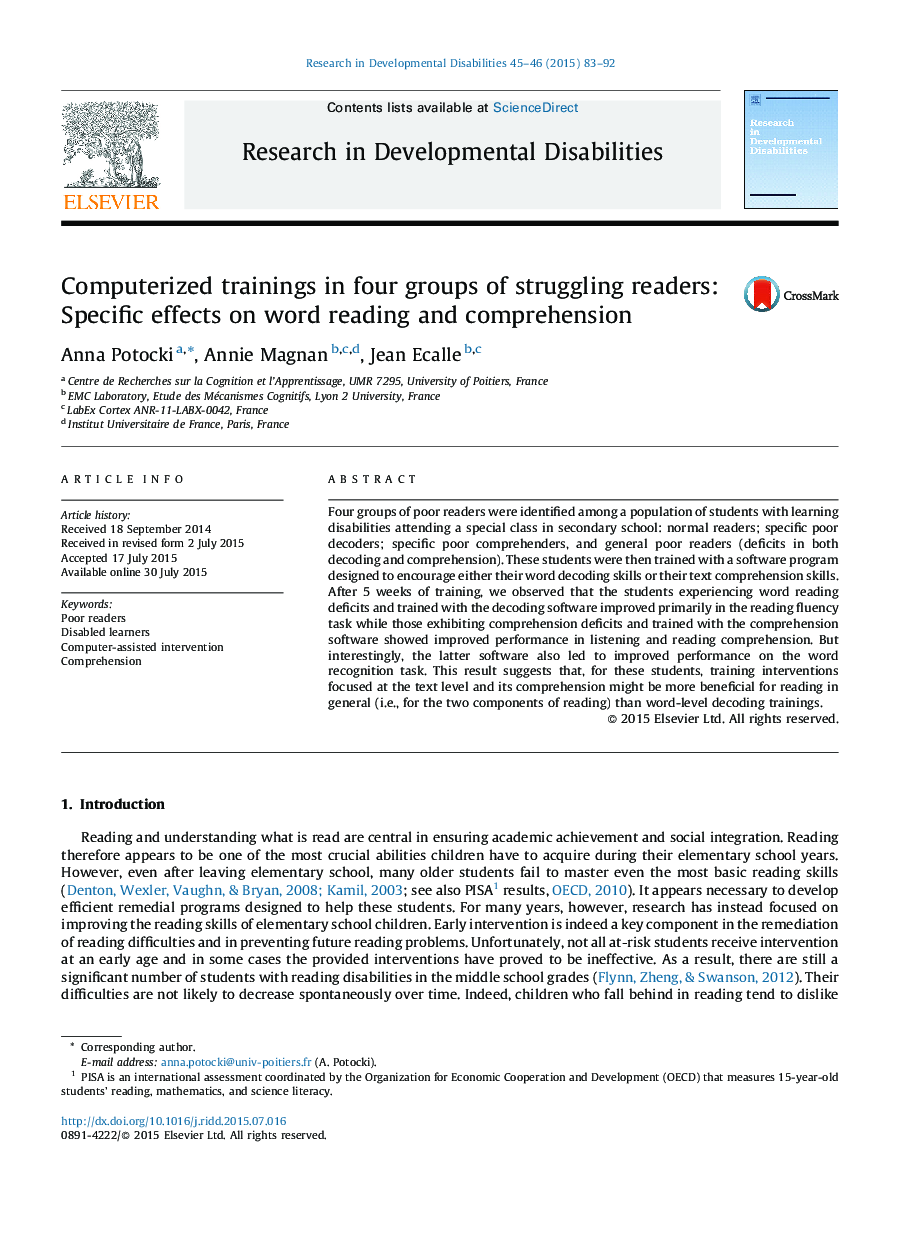| Article ID | Journal | Published Year | Pages | File Type |
|---|---|---|---|---|
| 371160 | Research in Developmental Disabilities | 2015 | 10 Pages |
•Four profiles of poor readers were identified among adolescents with disabilities.•Each profile was trained using a program fostering one aspect of reading.•These programs were adapted to the children initial reading deficits.•Comprehensions trainings were more beneficial for reading than decoding trainings.
Four groups of poor readers were identified among a population of students with learning disabilities attending a special class in secondary school: normal readers; specific poor decoders; specific poor comprehenders, and general poor readers (deficits in both decoding and comprehension). These students were then trained with a software program designed to encourage either their word decoding skills or their text comprehension skills. After 5 weeks of training, we observed that the students experiencing word reading deficits and trained with the decoding software improved primarily in the reading fluency task while those exhibiting comprehension deficits and trained with the comprehension software showed improved performance in listening and reading comprehension. But interestingly, the latter software also led to improved performance on the word recognition task. This result suggests that, for these students, training interventions focused at the text level and its comprehension might be more beneficial for reading in general (i.e., for the two components of reading) than word-level decoding trainings.
